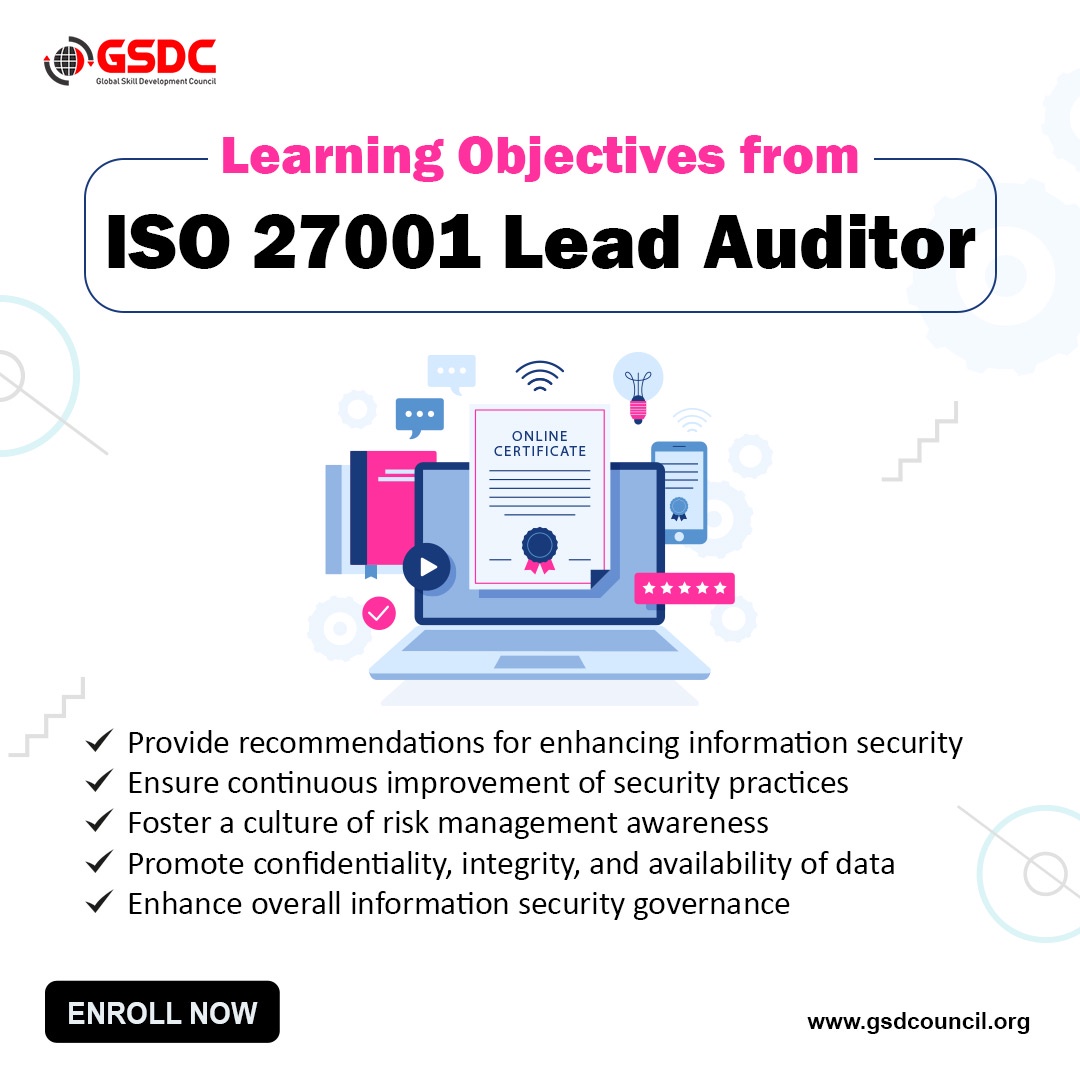ISO 27001 Lead Auditor Certification equips individuals with the skills and knowledge necessary to effectively lead audits, document findings, and ensure compliance with information security standards. These tasks play a crucial role in evaluating and improving an organization's Information Security Management System.
Let's elaborate on each learning objective for an ISO 27001 Lead Auditor:
Provide Recommendations for Enhancing Information Security:
An ISO 27001 Lead Auditor should be capable of identifying areas for improvement in an organization's information security practices. This involves assessing the effectiveness of existing controls and suggesting enhancements to strengthen the overall security posture. Develop skills in critical analysis and evaluation to identify gaps in information security and provide actionable recommendations for improvement.
Ensure Continuous Improvement of Security Practices:
Continuous improvement is a key principle of ISO 27001. A Lead Auditor should not only identify areas for improvement but also foster a mind-set of ongoing enhancement in information security practices. Develop strategies for implementing and monitoring continuous improvement processes within an organization's Information Security Management System (ISMS).
Foster a Culture of Risk Management Awareness:
ISO 27001 emphasizes risk management as a fundamental aspect of information security. A Lead Auditor should promote a culture where everyone in the organization is aware of and actively participates in risk management activities. Develop communication and training skills to effectively convey the importance of risk management. Encourage collaboration between different departments to collectively manage and mitigate risks.
Promote Confidentiality, Integrity, and Availability of Data:
These three components—confidentiality, integrity, and availability (CIA)—are core principles of information security. A Lead Auditor should ensure that information assets are protected against unauthorized access, maintained accurately, and are available when needed. Develop a comprehensive understanding of the CIA triad and the various controls and measures that contribute to maintaining these principles.
Enhance Overall Information Security Governance:
Information security governance involves the strategic direction, accountability, and assurance framework for information security in an organization. A Lead Auditor should contribute to enhancing the overall governance structure. Develop a holistic view of information security governance, including policies, procedures, and the organizational structure. Work on strategies to align information security goals with overall business objectives.
These learning objectives collectively contribute to the effectiveness of an ISO 27001 Lead Auditor in guiding organizations toward robust information security practices, compliance with standards, and the continual improvement of their Information Security Management Systems. The role involves not only technical knowledge but also the ability to communicate effectively and drive cultural and procedural changes within an organization.


No comments yet